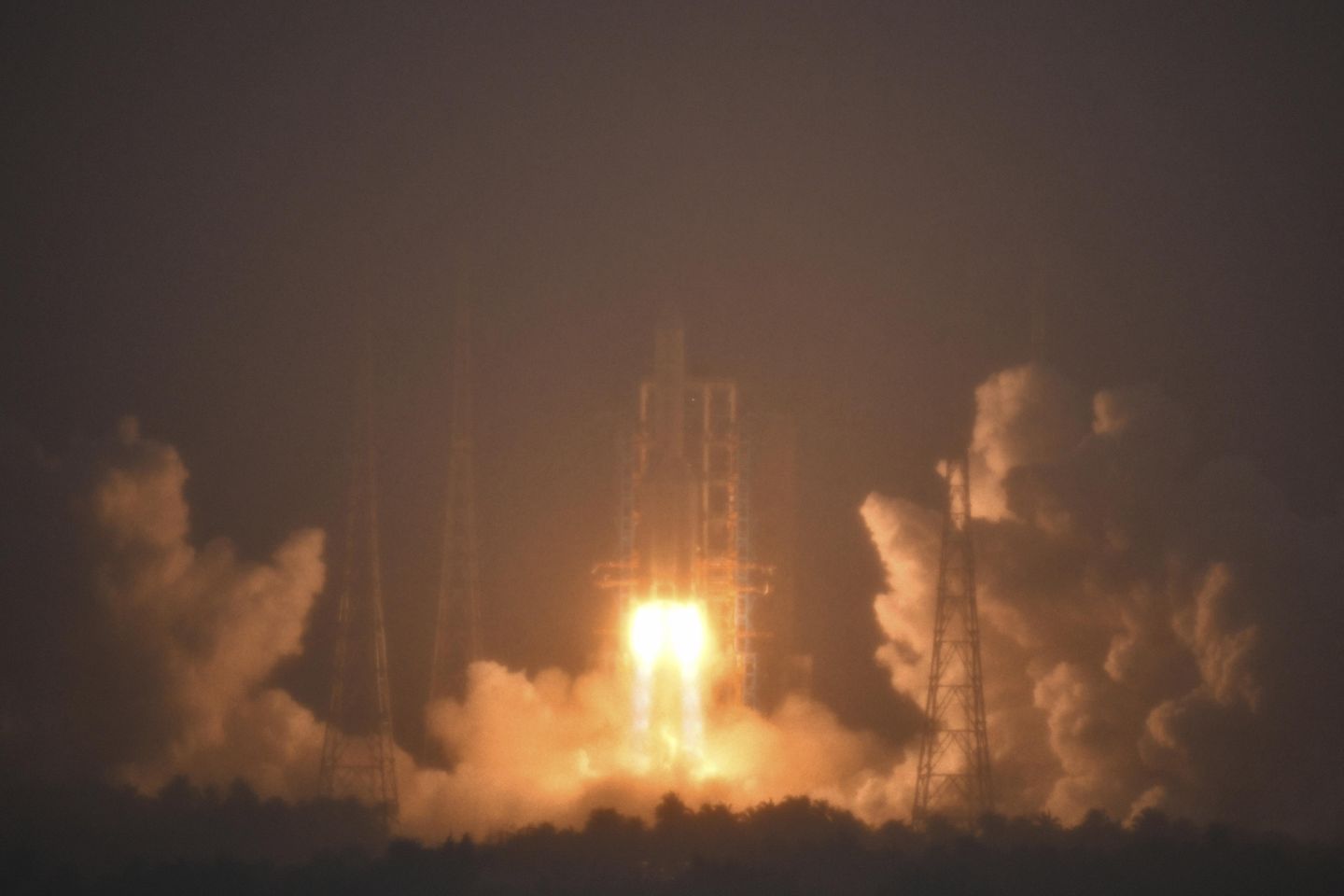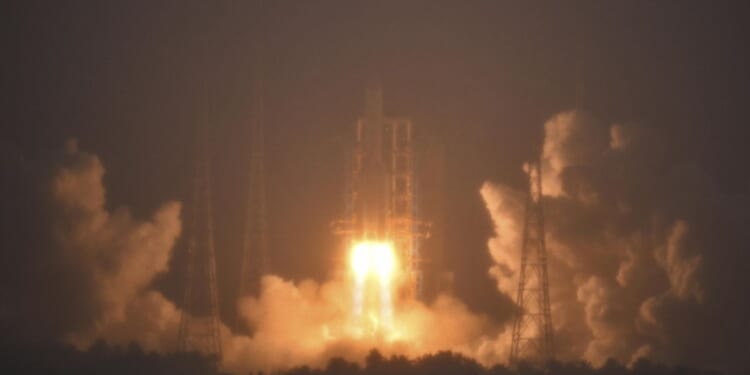
The U.S. military is likely headed to the moon to counter multiplying threats in space from China and Russia, a key House Republican is predicting.
Space wars no longer appear to be science fiction for U.S. policymakers. Rep. Ken Calvert, the California Republican who chairs the House Appropriations defense subcommittee, says he is bracing for China to militarize the moon and Russia to put a megaton bomb in low Earth orbit.
Mr. Calvert told the Hill & Valley Forum’s gathering of top tech and government officials in Washington this week that the U.S. Space Force is likely headed to the moon as well.
“Space Force will be actively involved in, I think, in going to the moon at some point and that discussion is ongoing,” Mr. Calvert said. “Obviously, China is probably going to militarize the moon, I have no doubt, so I suspect we will have a base on the moon also … maybe by the end of this decade.”
China is planning its own moon base. In April, the Chinese National Space Administration published a video depicting its plans for a lunar base, the International Lunar Research Station, broadcast by the state-run China Global Television Network. China and Russia previously announced plans for the ILRS in 2021.
“By 2035, ILRS will build Basic Model to implement regular lunar scientific experiments, technology verification, and in-situ resource utilization,” read English-language captions on the video depicting China’s plans to establish a settlement on the moon. “By 2045, ILRS will build a comprehensive well-operated Extended Model to implement lunar-based complex scientific researches well as large-scale lunar resources utilization to support humankind go to deeper space.”
And on Friday, Chinese space officials launched a new lunar probe that is designed to land on the far side of the moon and return with samples that could provide insights into differences between the less-explored region and the better-known near side.
China’s bold plans included an embarrassing blunder, however. Space.com noticed the video included a rendering of a NASA space shuttle taking off from the moon’s surface, and China’s state-run broadcaster then blurred the shuttle in the video it posted on YouTube.
Mr. Calvert said he anticipates NASA will miss a target of returning to the moon between fiscal 2025 and 2026, but the “horse has left the barn” on efforts to prevent militarizing space.
“According to news reports, Russia is moving forward to put an apparently one-megaton bomb into low-Earth orbit,” Mr. Calvert said. “And that’s basically blackmail against the world if something happens that they don’t agree to, that they would threaten to have that bomb go off. And of course everything in low-Earth orbit would be destroyed because the radiation field it would create around the world.”
If detonated, the bomb would completely shut off space, according to Tom Mueller, Impulse Space CEO who previously helped start SpaceX, the private rocket design and launch firm.
He told the Hill & Valley Forum that he hoped nobody would be stupid enough to use the bomb.
“If a large nuclear weapon were let off in low Earth orbit, not only would the radiation just destroy everything on that side of the earth immediately but then the collisions of all the debris would continue and it would be basically low Earth orbit would be unusable for possibly for decades,” Mr. Mueller said.
Delian Asparouhov, co-founder of Varda Space Industries and one of the forum’s organizers, said the moon is an important high ground for the United States to hold over its adversaries.
“I would argue that the moon is ultimately, in some ways, the most important civil and military objective over the course of the next decade,” Mr. Asparouhov said.
Asked by Mr. Asparouhov if they would visit America’s potential moon base if it is accessible by 2034, both Mr. Calvert and Mr. Mueller said they wanted to go. Mr. Calvert said he would be about 80 years old, but he would make the trek if the U.S. would take him.












